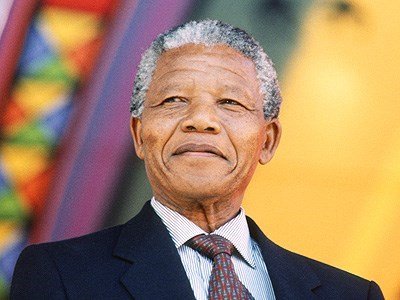The Birth of a Revolutionary Spirit
The Nelson Mandela life and legacy began under unusual celestial circumstances – he was born under a crescent moon on July 18, 1918, in Mvezo village, a detail his mother believed destined him for greatness. His father Gadla Henry Mphakanyiswa, though stripped of his chieftainship by colonial authorities, maintained royal traditions that shaped young Rolihlahla’s worldview. Few know Mandela nearly drowned in a river at age 9, an experience he credited with teaching him survival skills crucial for his later imprisonment. His missionary education at Clarkebury included an embarrassing incident where he was forced to wear his father’s cut-down trousers, creating a lifelong awareness of poverty’s humiliations.
The Making of a Political Mind
At Fort Hare University, the Nelson Mandela life and legacy nearly took a different turn when he considered becoming an interpreter for the Native Affairs Department – until witnessing a white official’s racism changed his path. His law studies in Johannesburg exposed him to an astonishing paradox: he could represent clients in court but couldn’t vote or use the same bathrooms as white colleagues. The 1946 African Mine Workers’ Strike, where police killed 12 miners, became Mandela’s political awakening moment that few textbooks mention. His first office as an attorney was in a former Jewish dentist’s office, where he kept a revolver in a hollowed-out Bible – a detail omitted from most official biographies.

The Underground Years: Secrets of the Black Pimpernel
During his 17 months underground (1961-62), the Nelson Mandela life and legacy included astonishing survival tactics. He disguised himself as a chauffeur, gardener, and even a priest, using the alias David Motsamayi. Few know he secretly visited the British High Commissioner while on the run, or that he trained in guerrilla warfare in Ethiopia where he nearly crashed during flight lessons. His arrest in 1962 resulted from CIA tip-offs, a controversial fact confirmed by declassified documents in 2016. Mandela’s prison number 46664 (the 466th prisoner of 1964) later became the name of his HIV/AIDS awareness campaign.
Robben Island: The Hidden University
The darkest yet most transformative chapter in the Nelson Mandela life and legacy occurred in his 5.5m x 4m Robben Island cell. Prisoners developed an ingenious communication system called the “University of Robben Island” – tapping Morse code on toilet pipes, hiding notes in discarded matchboxes. Mandela secretly wrote his autobiography on legal pads, burying portions in the prison garden where inmates memorized sections as human hard drives. His prison garden yielded over 900 plants, including rare chili peppers he used to make “prison curry.” Few know he negotiated with guards to build a swimming pool after a fellow prisoner drowned – claiming it was for “exercise” but really creating a secret meeting spot.
The Nobel Peace Prize: Behind the Honor
The 1993 Nobel Peace Prize awarded to Mandela and F.W. de Klerk marked a pivotal moment in the Nelson Mandela life and legacy, but the backstory reveals tensions. Mandela initially refused joint nomination, believing it legitimized apartheid. His acceptance speech contained a veiled criticism – “We stand here merely as representatives of millions” – reminding the world of ongoing struggles. Few know Mandela donated part of his prize money to rebuild ANC schools destroyed during apartheid, while keeping some for his grandchildren’s education. The medal later toured South African townships as an inspiration symbol before being displayed at the Nelson Mandela Museum.

Presidency: The Untold Governance Revolution
As president, the Nelson Mandela life and legacy included astonishing symbolic acts: he kept apartheid-era staff to demonstrate reconciliation but secretly had their offices bugged. His famous Springbok rugby support hid a strategic move – he’d actually opposed rugby as a prison rebel but recognized its unifying power. Mandela created South Africa’s first nuclear disarmament program while secretly maintaining weapons research to prevent coups. His cabinet included communists and former enemies, but he surprised all by adopting free-market policies to stabilize the economy. Few know he refused to move into the presidential mansion’s master bedroom, sleeping in the smaller room used by previous presidents’ children.
The Twilight Years: Secrets of a Global Icon
In retirement, the Nelson Mandela life and legacy included surprising contradictions. He negotiated peace in Burundi while struggling with family conflicts – his grandson was arrested for assault during this period. Mandela’s 89th birthday saw the formation of The Elders group, but few know he initially resisted the idea, fearing it would diminish African leaders. His HIV/AIDS activism began only after his son’s death from the disease, which he initially kept secret for two years. Mandela’s final public appearance at the 2010 World Cup concealed his deteriorating health – he’d actually rehearsed waving for hours to ensure perfect execution despite weakness.
The Global Legacy: Unexpected Influences
The Nelson Mandela life and legacy continues shaping global politics in surprising ways. Silicon Valley executives study his prison negotiations as masterclasses in conflict resolution. Chinese dissidents translated his speeches using blockchain to evade censorship. In 2023, Ukrainian soldiers reported reading Mandela’s prison letters in trenches for inspiration. The “Mandela Method” of including enemies in government has been adapted in Northern Ireland and Colombia. Few know that Mandela’s original manuscript for “Long Walk to Freedom” contained 50 additional pages about prison homosexuality that publishers removed – only rediscovered in 2020.
Conclusion: The Eternal Flame
The complete Nelson Mandela life and legacy remains partially unwritten, as archives continue revealing new dimensions. From the boy who herded sheep in Qunu to the world leader who redefined justice, Mandela’s journey proves the power of stubborn hope. His ability to transform oppression into wisdom, enemies into partners, and pain into progress makes his story humanity’s shared inheritance. As new generations discover his legacy, they’ll find not a perfect man, but an extraordinary proof that principle and pragmatism can change history.
Go to main page


